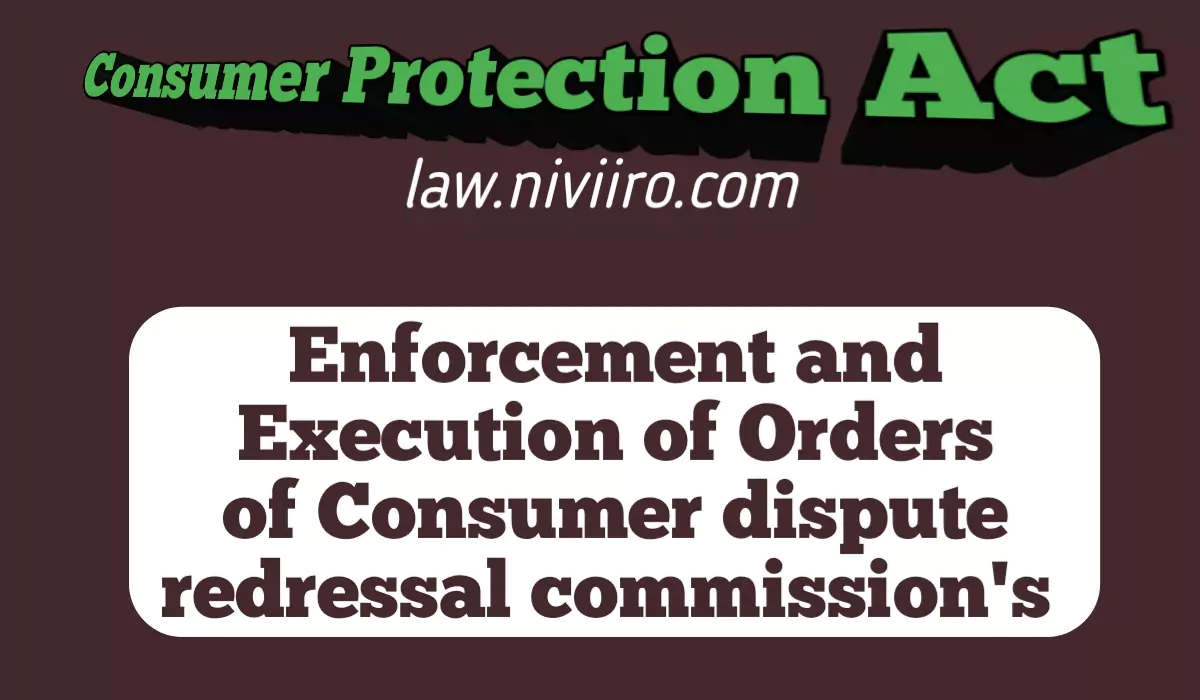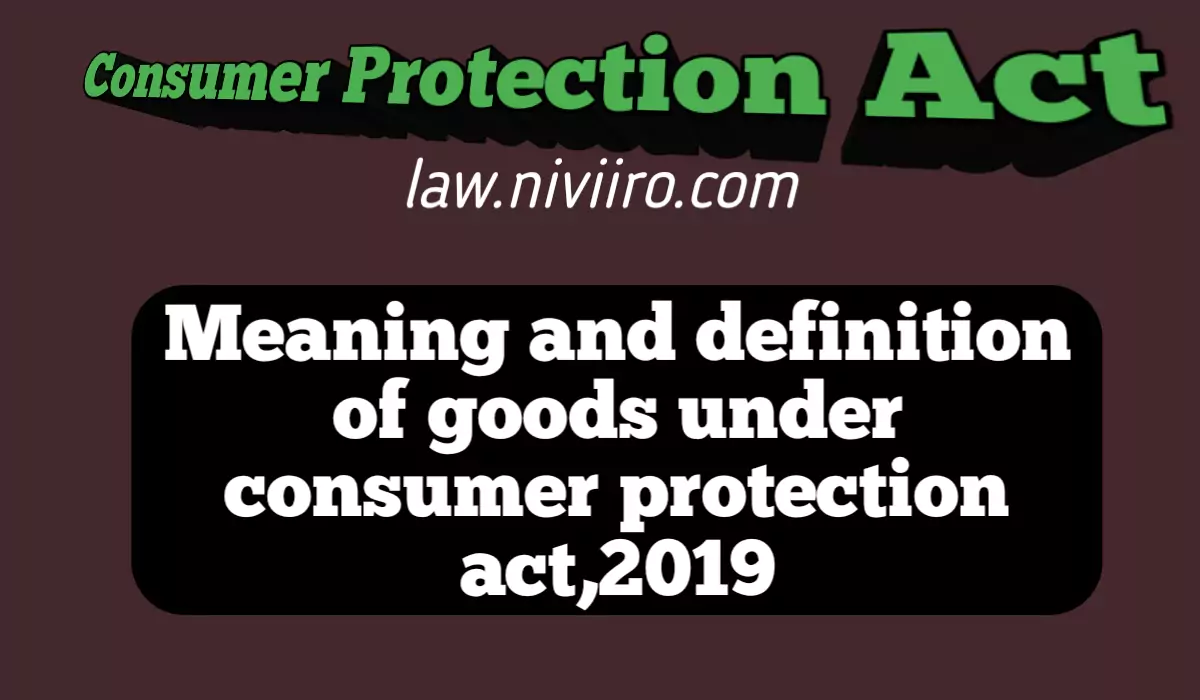Consumer Protection Act : Indian consumer law is a body of laws and rules designed to safeguard the rights and interests of Indian consumers. The main piece of legislation governing consumer protection in India is the Consumer Protection Act, 2019. It repeals the previous Consumer Protection Act of 1986 and establishes consumer dispute resolution commissions and consumer protection councils at the federal, state, and local levels.
Consumer Protection Act – Introduction
Consumer protection is the practice of protecting buyers of goods and services from unfair market practices. It refers to the steps taken to protect consumers from corrupt and unscrupulous practices by sellers, manufacturers, service providers, and others, as well as to provide remedies if their consumer rights are violated.
In this regard, The Consumer Protection Act, 1986 (COPRA) was passed in Lok Sabha on 9th December, 1986 and in Rajya Sabha on 10th December, 1986. After that, it was assented by the President of India on 24th December, 1986 and was published in the Gazette of India on 26th December, 1986. This act came into force from 1 July 1987. This Act is regarded as the ‘Magna Carta’ in the field of consumer protection for checking unfair trade practices, ‘defects in goods’ and ‘deficiencies in services’ in India.
The Consumer Protection Bill, 1986, seeks to better protect the interests of consumers by providing for the establishment of Consumer councils and other authorities for the resolution of consumer disputes and matters related thereto. After three decades, the Consumer Protection Act of 1986 is repealed and replaced by the Consumer Protection Act of 2019.
The Consumer Protection Bill, 2019 was introduced in Lok Sabha by the Minister of Consumer Affairs, Food and Public Distribution, Mr. Ram Vilas Paswan on July 8, 2019. The bill received assent from President Ram Nath Kovind on 9 August, 2019 and was notified in The Gazette of India on the same date. The Act came into effect by 20 July 2020, while certain other provisions of the Act like establishing the Central Consumer Protection Authority came into effect from 24 July 2020.
In the age of digitization, the Consumer Protection Act, 2019 was enacted to broaden the scope of consumer rights and cover the fields of e-commerce, direct selling, tele-shopping, and other multi-level marketing.
Purpose and Scope of the Consumer Protection Acts
The preamble of the Consumer Protection Act of 1986 expressly provides for the protection of consumer’s interests and includes provisions for the establishment of Consumer Councils and other authorities for the resolution of consumer disputes. As a result, the scope rather than the extent and nature of the Act’s protection scheme would become important in assessing the Act’s range. It is a comprehensive Act that provides for the establishment of Consumer Councils and other authorities for the resolution of consumer disputes.
The Act establishes a Central Consumer Protection Council and a State Consumer Protection Council, both of which serve the same purpose. The following are a list:
- Right of protection against marketing goods and services which are harmful to life and property,
- Right to be informed about the quality, quantity, purity, standard and price of goods or services,
- Protection to consumer against unfair trade practices,
- Right to be assured to a variety of goods and services, of competitive prices,
- Right to be heard and to be assured that consumers interest will be given diligence consideration at appropriate forum,
- Right to seek redressal against unfair trade practices or restrictive trade practices against exploitation of consumers,
- Right to consumer education.
In (Dr.) C.S. Subramaniam v Kumaraswamy, the Madras High Courtexplained that what is comprehended for protection under the Consumer Protection Act, 1986 is a consumer’s economic interest, in order to curb restrictive and unfair trade practices.
Under the Consumer Protection Act, 1986 disputes redressal forums are not the courts but merely disputes redressal forums established to “settle” the disputes and pass orders as specified in Section 14 of the Act. The Act provides inexpensive nature of summary procedure for trials and disposal of disputes within time-bound frame. The orders of redressal agencies are not to be carried out in the same manner as a decree passed by the Civil Court because it would be contrary to what Parliament intended for an expeditious, beneficent, and inexpensive jurisdiction.
The Consumer Protection Act, 1986 is objected to provide more cost-effective and timely redressal of genuine consumer grievances. The consumer who purchases goods, receives goods, or hires services for consideration secures the right to seek redress before forums established under the Act and to assert any of the relies provided in Section 14(1) of the Act.
However, the merchant or person who provides the service is not entitled to seek recourse in this forum; their remedy is limited to the ordinary court of civil jurisdiction. In R.S. Metals P. Ltd. v. New India Assurance Co Lid case, the Court stated that it is of utmost public importance that no one should abuse the remedies available under this Act by filing false complaints based on fabricated evidence and harassing those who supply goods or render services.
The Act establishes a three-tiered forum for resolving consumer grievances: the District Forum at the district level, the State Forum at the state level (known as the State Commission), and the National Commission at the national level. The primary goal of establishing Forums at three levels is to ensure the prompt resolution of consumer disputes.
In Consumer Protection Council v. National Dairy Development Board, the Court stated that the Consumer Protection Act, 1986, which grants such public body the right, states in its preamble that the Act was enacted to provide better protection of consumer interests, and its object clearly states that a consumer has a right to be assured, wherever possible, access to a variety of goods at competitive prices.
Constitutional validity of the Consumer Protection Acts
The Constitutional validity of any act refers to its conformity with the provisions of the Constitution of a country. It means that the act or law should not violate any of the fundamental rights, principles, or provisions enshrined in the Constitution.
In the case of State of Karnataka v. Vishwabharti House Building Coop. Society & Others, the constitutional validity of the CPA was challenged on the ground that it encroaches upon the exclusive power of the state legislatures to make laws on contracts and property rights under Seventh Schedule to the Constitution.
The Supreme Court of India, in its judgment, held that the CPA is a valid legislation as it falls under Seventh Schedule, which pertains to the concurrent list, and the Parliament has the power to enact laws on matters relating to the protection of consumer rights. The Court also held that the CPA is not ultravires Article 246 of the Constitution and Article 14 of the Constitution as it provides for a reasonable classification of consumers based on their ability to hire legal services.
In the case of Spring Meadows Hospital v. Harjal Ahluwalia, the constitutional validity of certain provisions of the CPA was challenged on the ground that they violate the fundamental right of healthcare providers to practice their profession and carry on business under Article 19(1)(g) of the Constitution. The Supreme Court of India, in its judgment, held that the CPA is a valid legislation as it is enacted in the interest of public health and safety and is a reasonable restriction on the fundamental right to carry on business. The Court also held that the CPA does not violate Article 21 of the Constitution as it provides for a fair and reasonable procedure for the resolution of consumer disputes.
The constitutional validity of the CPA is further supported by Article 246 of the Constitution, which provides for the division of powers between the Union and the States, and the Consumer Protection Act, 2019, which is a valid legislation passed by the Parliament under its power to legislate on matters relating to the protection of consumer rights under the Concurrent List of the Seventh Schedule to the Constitution.
Therefore, both the Consumer Protection Act, 1986 and the Consumer Protection Act, 2019 are considered to be valid legislation under the Constitution of India. The Acts provide consumers with an effective mechanism for redressal of grievances and uphold the fundamental right to life with dignity enshrined in Article 21 of the Constitution.
Consumer Protection Act, 1986 is a Comprehensive Act
A comprehensive act is a law or legislation that covers a wide range of topics or issues related to a particular subject. It aims to provide a complete and detailed framework for regulating or addressing all aspects of a particular issue. it is an all-encompassing law that provides a complete and detailed framework for addressing a particular problem or issue.
The Consumer Protection Act, 1986 is a Comprehensive Act under Section 2(1)(o) of the Act, enacted by the Parliament that provides a legal framework for the protection of consumer rights in India. It addresses a wide range of consumer protection issues, such as the establishment of consumer courts, consumers’ rights to seek redress for grievances, and manufacturers’ and service providers’ responsibilities to consumers.
This act has been initiated by the Ministry of Food and Civil Supplies, Government of India but even after that it is not limited to subjects under the control of Civil Supplies Ministry. Specifically, for the proceedings of consumer forum, only certain provisions of CPC (Code of civil Procedure) which are applicable to it are referred in Consumer protection act. It is not requirement of law to refer other provisions of the code. For this, consumer forum will permit an authorised agent for the client to appear before it.
It is to be noted that even The Bar Council of State or The Bar Council of India exercises control over the conduct of a lawyer but there is no such control over a ‘professional authorised agent’ because of which consumer forum has to guard itself against unscrupulous authorised agents who use it as a profession to earn his livelihood and exploit consumers for their own benefit with no regard and interest towards consumer movement. For which, Consumer Forum by examining the qualification, relationship and antecedent of an authorised agent while representing a consumer, permits him/her to appear before the forum to represent the client.
Several complaints have been found against voluntary consumer organisations regarding exploitation of consumers for which regulations has to be framed and prescribed for blacklisting such voluntary consumer organisations.
There were mainly two questions raised before the national commission –
- Whether any consumer or voluntary consumer organisation is prescribed for authorising an agent to appear before a consumer forum.
- Whether any voluntary consumer organisation is allowed to proceed with the complaint which a complainant (consumer) himself chooses to withdraw, and the complaint involves an issue concerning unfair trade practice or restrictive trade practice.
For these above stated questions, it was held by the national commission that no forum is prescribed for authorising an agent before a consumer forum. With an exception, authorization can be by way of special power of attorney executed on a non-judicial stamp-paper or even on a plain paper duly attested and power of attorney holder may even engage a counsel if authorised to do so.
As per Section 42(4) of the Consumer Protection Act, 2019, if a complainant chooses to withdraw their complaint, the voluntary consumer organization may proceed with the complaint only if it involves a “public interest” element. However, it would need to establish that the complaint involves a public interest element and seek permission from the National Commission before proceeding with the case.
Related Post
1. When was the CPA, 1986 passed, enacted and came into force?
The Consumer Protection Act, 1986 passed by both the houses and it was assented by president on 24th December, 1986, also enacted by the parliament on 24th December, 1986, and came into effect from 1st July, 1987.
2. When was the CPA, 2019 passed, enacted and came into force?
The Consumer Protection Act, 2019 passed by both the houses and it was assented by president on 9th August, 2019, also enacted by the parliament on 9th August, 2019, and came into effect from 24 July 2020.
3. Write any two differences between CPA, 1986 and CPA, 2019.
1. The Pecuniary Jurisdiction of the CPA, 1986 provides District forum (upto 20 lacs), State commission (from 20 lacs to 1 crore), National commission (from 1 crore and above) Whereas the Pecuniary Jurisdiction of the CPA, 2019 provides District forum (upto 1 crore), State commission (from 1 crore to 10 crore), National commission (from 10 crore and above).
2. The composition of state commission under CPA, 1986 involves a president and 2 other members whereas under CPA, 2019, it involves a president and 4 other members.
4. Prove the Constitutional validity of the Consumer Protection Act.
The Constitutional validity of any act refers to its conformity with the provisions of the Constitution of a country. Based on the cases of State of Karnataka v. Vishwabharti House Building Coop. Society & Others & Spring Meadows Hospital v. Harjal Ahluwalia, it was held that the CPA does not violates Article 246, Article 14 and Article 21 as it provides for a reasonable classification of consumers and reasonable procedure for the resolution of consumer disputes.
5. Who is agent?
According to Section 2(b) of the Central Consumer Protection Rules, 1987, “agent” means a person duly authorised by a party to present any complaint, appeal or reply on its behalf before the National Commission.
6. If Consumer Protection Act, 1986 is a Comprehensive Act?
The Consumer Protection Act, 1986 is a Comprehensive Act under Section 2(1)(o) of the Act, enacted by the Parliament that provides a legal framework for the protection of consumer rights in India. It addresses a wide range of consumer protection issues, such as the establishment of consumer courts, consumer’s rights to seek redress for grievances, and manufacturer’s and service provider’s responsibilities to consumers.
7. What is the Purpose of the Consumer Protection Act?
The purpose of the CPA is the protection of interests of consumers and to establish Consumer Councils and other authorities for the resolution of consumer disputes.
Reference Books
- Consumer Protection (Law & Practice) by V. K. Agarwal
- Consumer Protection Act: A Commentary by G. B. Reddy
- Commentary on the Consumer Protection Act by J. N. Barowalia

















